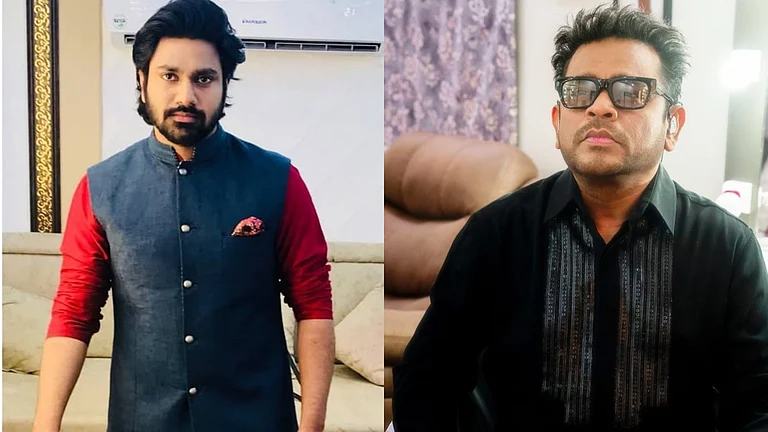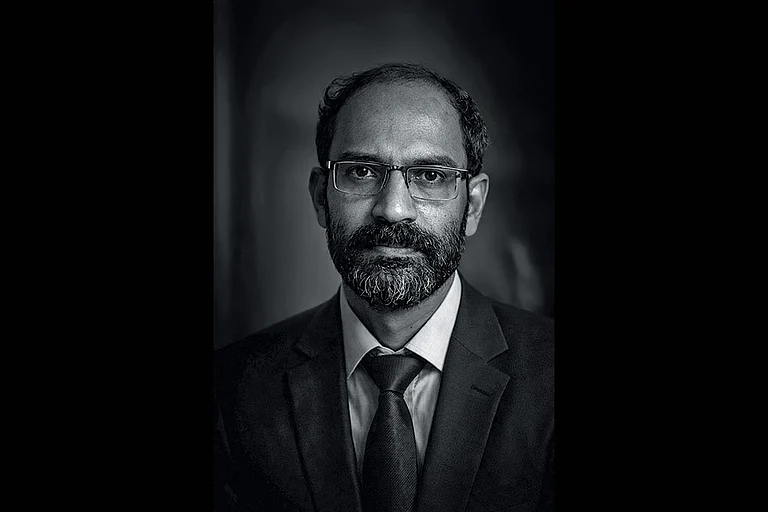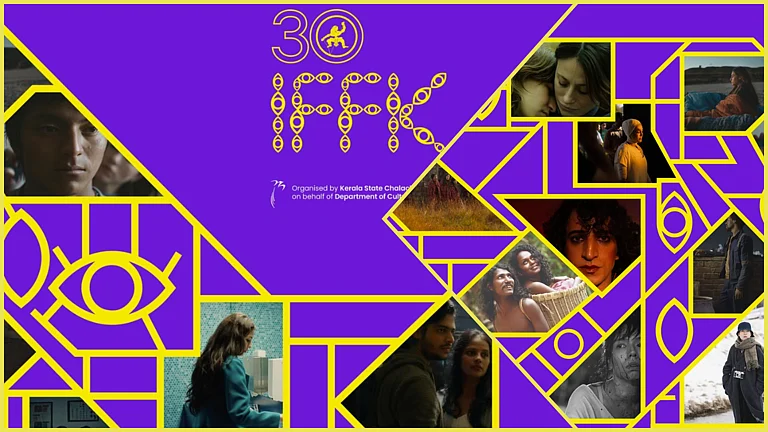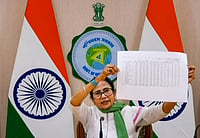Travelling to Sitalkuchi from Cooch Behar town is a peaceful experience. Miles of lush greenery dotted with huts and little shops, there is a silent rhythm that defines life here. It was Eid, and there weren't a lot of people in the heart of the Sitalkuchi market. The name of the town has been thrust into recent political exchanges across the state since four young people were gunned down by the CISF during the 2021 Assembly Elections in West Bengal.
The people looked at me with a sense of mature understanding, as if they were trained to do so. I could anticipate the replies and the indifference, and yet something pushed me to keep asking questions, and seeking directions to the houses of the deceased. Looking deep, one realises what makes the answers feel so regimented and practiced- the barrage of questions that they have been asked over the last three years have triggered a conditioning which has made them equate their home with a newfound definition- of bloodshed and unanswered questions.
I found my way to the village on the outskirts of the township, where the families of the deceased stay. In little pockets of sound, life continues, amidst miles of silence - a recurrent contrast which stands symbolic. I try to observe. It gives me the license to think. And I caught the very subtle initial reactions on the faces of the people when they came to know the purpose of my visit. The reactions never border on the extreme. They are controlled with a sense of internal acceptance - as if they knew they couldn't refuse me. All of these families made sure the first thing they did was pull out a chair for me. My insistance of sitting on the floor was met with firm decline. It felt like they knew the chore. An arrangement to do what? Ask them to replay memories of a day which they seek to grow past?
It felt selfish. And yet I knew, I felt this intense urge to talk to them and hear what they had to say. In the south, Nandigram in the Purba Medinipur district of West Bengal, a town which had suddenly become the centerpiece to Bengal's political shuffle lives in memories a massacre that happened seventeen years ago. While the upcoming Lok Sabha elections play the background to establishing the context of the conversations, the plan was to talk to the families of the deceased about how they felt about losing a wife, a child or a father on that particular day, seventeen years back, and how Nandigram survives in the present. The guilt started as soon as we walked into these houses expecting them to leave their work, break their rhythm and dig out a hurt of inexplicable proportions, just to talk and make sure that I have a story to produce.
While for Sitalkuchi, the wounds are fresh, Nandigram has been answering questions for almost two decades now. And the common thing which connected these people was how they knew they were media fodder before elections. On surface, I felt, their answers could sound rehearsed and so internally lodged that it would feel like they were reading out from a piece. However, talking to these people made me realise something important about the buffer between words and emotions. Somewhere, this little gap accommodates empathy. Nothing about the conversations were orchestrated.
There were tears, fumbles and pregnant pauses. Anger, regret and tough acceptance. All of these people were talking about death, death which they know is mere currency for the corridors of power. Death advertised and milked to meet political ends, while they sit on the other end hoping for a new dawn. It's acceptance that they live with, because they are too weak to fight it. And every time they talk to someone, they keep doing so without expectations. But can grief be rehearsed?

Death affects one in numerous ways. Sitalkuchi and Nandigram have made a tryst with grief, where death pushed these unassuming places to parley with attention. Both seeking answers to question of who sponsored the bullets. In all of the attention, living in the shadow of doubt is the only thing they hate. The hate doesn't come aimed at individuals anymore, but at how they are forced to recuperate with the weight of living in the dark. My phone continued to record as I tried to make sense of the breathlessness and tears I saw in front of me.
At the end of the two trips, I looked at the file of my recorded notes from these visits. All the pauses, images, heaves, tears, echoes and memories of unanswered bullets captured in a file. Seventeen or three years - all cramped into an intangible collection.
As I was leaving Sitalkuchi, one of the women of the families had pulled me back. Although hauntingly silent, it was still Eid. I couldn't leave their house without having something. She brought out a bowl of shemai and a couple of mauja suparis (soaked betel nuts) wrapped in betel leaves . They smiled as I dug into the bowl with urgency and laughed when I couldn't have the suparis in the right way. I laughed as well. At Nandigram, I promised I'd be back for some tender coconut the next time I was around. They wiped their tears and smiled. It was precious. But their smiles wouldn't sell for pictures.
I still don't know whether I did the right thing. I tried to document death, and laugh with them in the same breath. As I heard the recordings, waiting to transcribe, something made me want to keep replaying the notes. The language felt strange. It felt like convenient memories had fused with the tormented memories of a place. It was uncomfortable and painful. You ask yourself - what differentiates the recorder from the person holding it? Probably nothing.





























